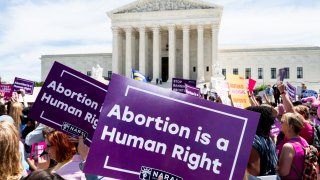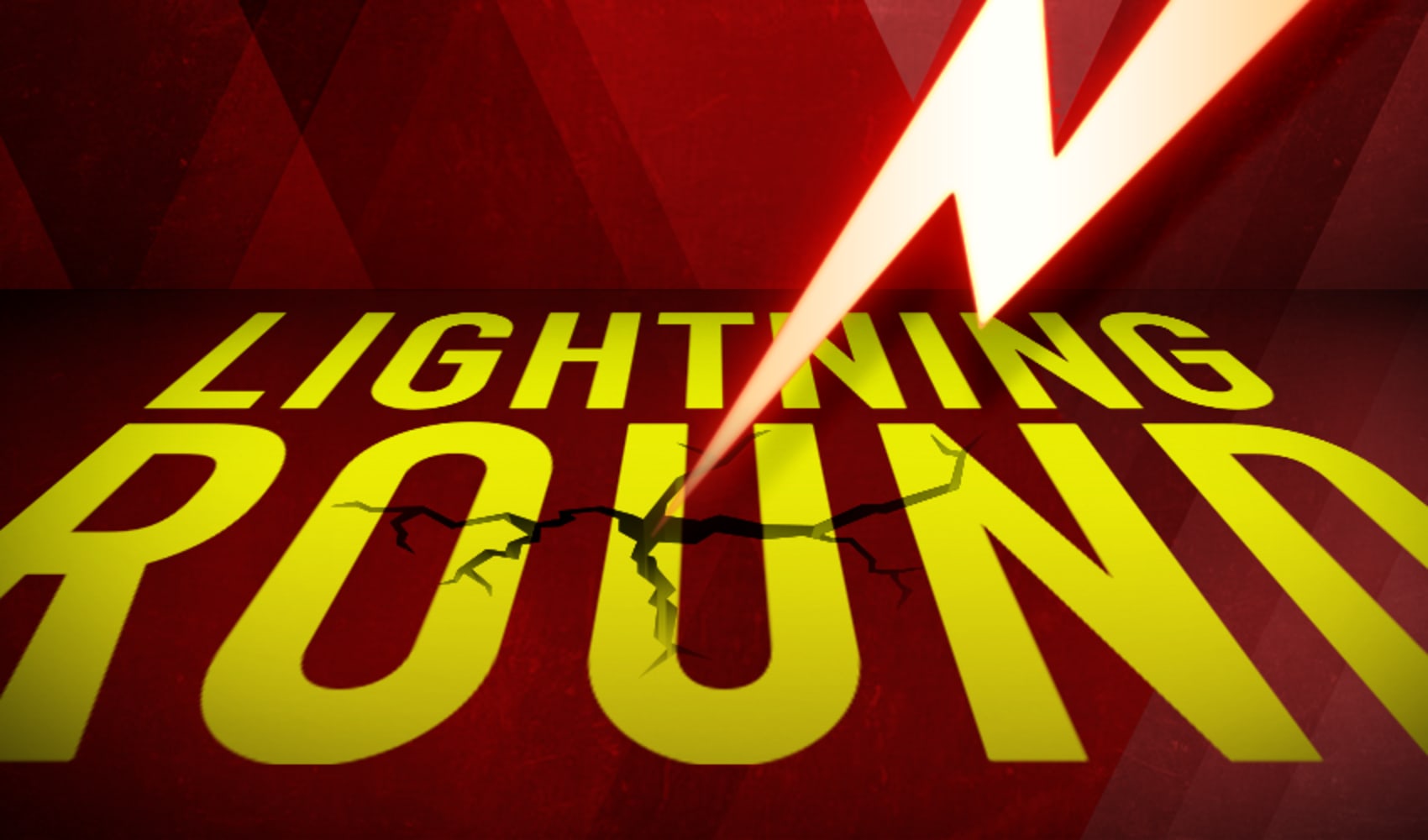
- The Supreme Court will hear oral arguments on Dec. 1 in a case that threatens to overturn the decades-old abortion protections established under Roe v. Wade.
- The case takes aim at the Supreme Court precedent barring states from banning abortions prior to a fetus becoming viable.
- Last month, all three of former President Trump's appointees — Neil Gorsuch, Brett Kavanaugh and Amy Coney Barrett — voted against a request to stop a highly restrictive abortion law in Texas from taking effect.
The Supreme Court will hear oral arguments on Dec. 1 in a case that threatens to overturn the decades-old abortion protections established under Roe v. Wade.
The case, Dobbs v. Jackson Women's Health Organization, takes aim at the Supreme Court precedent barring states from banning abortions prior to a fetus becoming viable, or capable of living outside the womb.
It centers on a 2018 law in Mississippi that bans most abortions after 15 weeks, a cutoff that is significantly earlier than the general fetal viability standard of around 22 weeks.
Get top local stories in DFW delivered to you every morning. Sign up for NBC DFW's News Headlines newsletter.
The law was blocked by a lower court, the 5th U.S. Circuit Court of Appeals, which ruled that the law directly contradicts the precedent of another pivotal abortion ruling, 1992's Casey v. Planned Parenthood. That decision permitted states to enact pre-viability abortion restrictions that did not create an undue burden on a woman's access to an abortion.
The high court in mid-May agreed to hear arguments over the Mississippi abortion law after the next term begins in October.
Money Report
A spate of abortion-related Supreme Court decisions in recent years have reaffirmed those protections. But the Mississippi case will be heard by a high court that grew sharply more conservative under Republican former President Donald Trump, who appointed three justices to the nine-seat bench.
Last month, all of Trump's appointees — Neil Gorsuch, Brett Kavanaugh and Amy Coney Barrett — voted against a request to stop a highly restrictive abortion law in Texas from taking effect.
The Texas law bars most abortions after six weeks. The 5-4 majority, which ruled without hearing oral arguments, declined to block the law, on procedural grounds.
Barrett, who was nominated to fill the seat left vacant by the death of liberal stalwart Justice Ruth Bader Ginsburg, had come under fire during her confirmation hearings from Democrats who were wary of her record on abortion.
Gorsuch and Kavanaugh last year voted to allow a strict Louisiana abortion law to go into effect. Chief Justice John Roberts, a conservative, sided with the liberals in the 5-4 decision blocking the law.
With six conservatives now occupying the bench, advocates say the threats to reproductive rights are greater than they have been in years.
President Joe Biden blasted the Supreme Court in the wake of its decision to let Texas' abortion law go into effect.
On Monday, his administration cited that law as it formally backed the Women's Health Protection Act, a bill that would shield abortion rights across the country.
"In the wake of Texas' unprecedented attack, it has never been more important to codify this constitutional right and to strengthen health care access for all women, regardless of where they live," Biden's Office of Management and Budget said in a statement of administration policy.
"We will not allow this country to go backwards on women's equality," the statement said.
This is breaking news. Please check back for updates.






